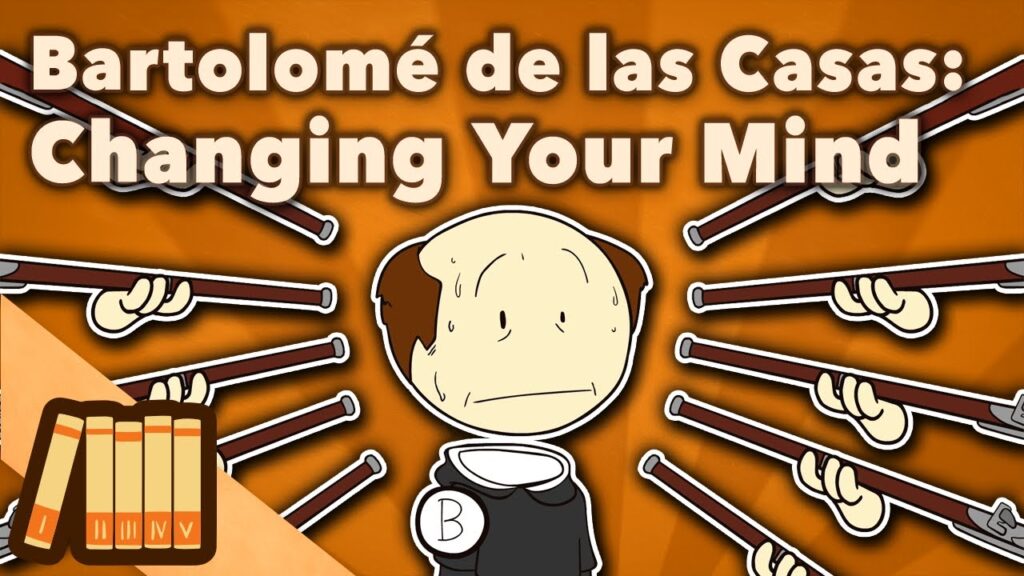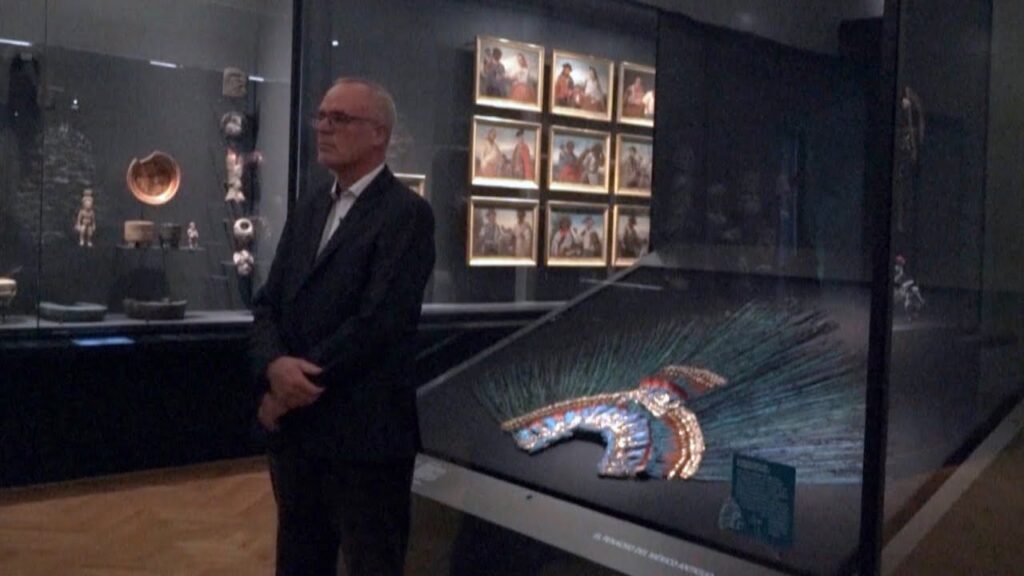Discovering Fray Bartolomé de las Casas: Advocate for Indigenous Rights
Embarking on a journey through the history of Mexico, we often encounter monumental figures, but few have left a legacy as profound as Fray Bartolomé de las Casas. This 16th century Dominican friar became known for his fervent advocacy for the rights of indigenous peoples in the face of colonial oppression. De las Casas, originally arriving as a colonist, underwent a remarkable transformation upon witnessing the harsh treatments meted out to the natives by European settlers.
His seminal work, ‘Brevísima relación de la destrucción de las Indias,’ provides a harrowing account of the atrocities committed against the indigenous populations. It was through this vivid chronicle that De las Casas sought to bring the plight of these communities to the attention of the Spanish Crown. His efforts were partially successful, contributing to the enactment of the ‘New Laws’ which aimed to improve the treatment of the indigenous peoples, albeit the implementation of these laws was met with resistance and limited success.
The teachings and writings of Fray Bartolomé de las Casas have endured over the centuries as a testament to his unyielding commitment to human rights. For travelers exploring the rich cultural tapestry of Mexico, understanding his influence is to recognize a key chapter in the country’s narrative. His legacy serves as both a beacon of moral conscience in the dark history of colonization and a continuing inspiration for advocacy of indigenous rights and justice.
The Legacy of Fray Bartolomé de las Casas in Modern Mexico
Traversing the landscapes of modern Mexico, one can often witness the profound influence of historical figures who shaped the ethics and ethos of the nation. Among these figures, Fray Bartolomé de las Casas stands out as a testament to the power of moral conviction and the quest for justice. Best known for his fervent advocacy for the rights of indigenous peoples during the early periods of Spanish colonization, his legacy lingers in the collective consciousness of Mexico’s cultural and socio-political realm.
In modern discourse, Fray Bartolomé de las Casas is often referred to as the «Defender of the Indians,» a title well-earned through his relentless pursuit to protect the indigenous populations from the brutalities of colonial exploitation. His written works, especially the «Brevísima relación de la destrucción de las Indias,» provided a shocking chronicle of the harsh treatment of natives, influencing both contemporary and successive human rights movements within Mexico.
De Las Casas’s legacy is particularly evident in Mexico’s legal framework, which has undergone numerous reforms to incorporate the values of equality and protection for indigenous communities. This is seen in the nation’s commitment to international declarations and the inclusion of indigenous rights in the Mexican Constitution. His tireless advocacy laid the groundwork for a national conversation around the fundamental importance of multiculturalism and respect for the diversity of Mexico’s indigenous heritage.
Educational initiatives across Mexico continue to draw inspiration from De Las Casas’s writings and actions. In universities and secondary schools alike, curricula often include a study of his life and work, emphasizing his role as a precursor to modern human rights ideology. This educational focus not only honors his legacy but also serves to instill an appreciation for human dignity and a critical perspective on historical narratives that often marginalize indigenous perspectives.
Culturally, Fray Bartolomé de las Casas’s influence permeates artistic expressions and public discourse. From literature to film, his figure is often evoked as a symbol of moral courage and an advocate for social justice. Through these various mediums, his spirit continues to provoke reflection and dialogue among Mexicans, inspiring new generations to champion the principles he so valiantly defended during his lifetime.
Fray Bartolomé de las Casas: The Dominican Who Stood Against Oppression
In the lush and vibrant landscapes of 16th-century Mexico, amid the complex tapestry of indigenous cultures and Spanish colonization, one man stood out for his impassioned defense of the native people. This man was Fray Bartolomé de las Casas, a Dominican friar whose life’s mission became synonymous with advocacy for human rights and justice.
Initially arriving in the New World as an encomendero, Fray Bartolomé underwent a profound transformation upon witnessing the harsh treatment and brutal exploitation of the indigenous populations. This realization led him to renounce his own encomienda and devote himself to their protection. De las Casas was relentless in denouncing the repression and speaking out against the encomienda system that enslaved the native people.
His advocacy took many forms, from tireless writing and persuasive oration to direct appeals to the Spanish Crown. Key among his works was the «Brevísima relación de la destrucción de las Indias,» a raw and detailed account of the atrocities committed against the native peoples, intended to evoke the conscience of the Spanish rulers. This text remains a pivotal work in the historical understanding of colonial era human rights abuses.
Fray Bartolomé de las Casas established a legacy of standing on moral principles in the face of systemic oppression. His efforts were instrumental in the promulgation of the New Laws in 1542, which, although imperfect and often ignored, were among the first legal codes to advocate for the rights and protections of an oppressed class by a colonizing power.
Notably, De las Casas’s advocacy was not without controversy or criticism. His focus on the plight of indigenous people was seen by some as undermining the colonial objectives and by others as not going far enough to push for complete abolition of oppressive systems. Nevertheless, his voice remains a poignant reminder of the power of conviction and the enduring struggle for human dignity in situations of great adversity.
Tracing the Footsteps of Fray Bartolomé de las Casas in Mexico
In the rich tapestry of Mexico’s history, few figures are as compelling as Fray Bartolomé de las Casas. Known as the Protector of the Indians, this 16th-century Dominican friar harbored a strong commitment to defending indigenous rights during the colonial period. A trip through Mexico that traces the footsteps of this historic advocate offers a unique lens through which to view the country’s past.
De las Casas first arrived in Santo Domingo in 1502, but it was his later work in Mexico that solidified his legacy. Travelers can start their historical journey in Mexico City, formerly Tenochtitlan, where de las Casas participated in debates concerning the treatment of the native populations. It was here, at the Imperial College of Santa Cruz de Tlatelolco, that he argued passionately for more human approaches to colonization.
Moving south to the state of Chiapas, one can explore the town of San Cristóbal de las Casas, named after Fray Bartolomé. The town is home to the cathedral where de las Casas was appointed as Bishop. Within these walls, he continued his life’s mission, creating ordinances to protect the indigenous peoples from the encomienda system, which often subjected them to harsh and unpaid labor.
Finally, no expedition following de las Casas’s steps would be complete without visiting the Yucatán Peninsula. This region was another focal point of his advocacy. The convent of San Antonio de Padua, in the town of Izamal, serves as a reminder of the efforts made by de las Casas to establish peaceful relations between Europeans and the native Maya civilization through the promotion of Christian teachings that espoused kindness and opposition to violence and slavery.
Unveiling the True History: Fray Bartolomé de las Casas’s Advocacy Explored
Within the sprawling tapestry of Mexico’s past, few historical figures have sparked as much debate and reflection as Fray Bartolomé de las Casas, the sixteenth-century Spanish colonist, historian, social reformer, and Dominican friar. Recognized prominently for his steadfast advocacy for the rights of indigenous peoples in the face of colonial cruelty, Fray Bartolomé’s legacy is multifaceted and deeply imprinted in the narrative of the New World. His tireless efforts to chronicle the injustices and promote legislative reforms reflect a complex journey from complicity to moral revolt and activism.
Fray Bartolomé arrived in the New World with dreams of exploration and wealth, but what he witnessed fundamentally shifted his perspective. The harsh reality of conquest—the exploitation, enslavement, and widespread mistreatment of the native population—struck a chord within him. Over time, Fray Bartolomé became a vociferous critic of the encomienda system, a labor program that resembled slavery in its treatment of the native populace. His powerful sermons and writings were among the first to denounce European cruelty and to argue for the humanity of indigenous peoples, laying the foundation for what would become a new ethical approach toward colonization.
Through his seminal work «A Short Account of the Destruction of the Indies,» Fray Bartolomé de las Casas detailed vividly the atrocities committed by colonizers, seeking to influence the Spanish Crown and public opinion back home. This intense documentation became instrumental in shaping the Laws of the Indies, legal codes that aimed to regulate the treatment of indigenous peoples—though often inadequately enforced. Despite the controversy and opposition he faced, Fray Bartolomé’s unwavering commitment to justice and his prolific output as a writer make him an enduring figure in the quest to understand the often overlooked voices in Mexico’s storied past.
From Conquistador to Protector: The Transformation of Fray Bartolomé de las Casas
The life of Fray Bartolomé de las Casas is a tale of profound transformation set against the rugged backdrop of the New World. Initially arriving in the Americas as a conquistador, de las Casas would bear witness to the brutalities inflicted upon the indigenous populations by the Spanish colonizers. This experience would irrevocably change the course of his life, leading him to lay down his conquistador’s sword and take up the mantle of protector and advocate for the native people.
De las Casas’s early years in the Americas were marked by participation in military campaigns, but his encounter with the teachings of the Dominican friars catalyzed his change of heart. Profoundly moved by their message of peace and equality, de las Casas became a Dominican friar himself, dedicating his life to the defense of the indigenous peoples. His ordination marked a significant turning point, as he began using his voice to speak out against the injustices he had once been a part of.
In an era where the morality of colonization was rarely questioned, de las Casas proved to be a remarkable exception. His writings, notably «A Short Account of the Destruction of the Indies,» not only recounted the atrocities he had witnessed but also served as a powerful indictment of Spanish colonial policy. These works helped to illuminate the plight of indigenous communities, stirring conscience and debate among the European readership.
Perhaps de las Casas’s most enduring legacy is his vehement opposition to the encomienda system, which subjected the native people to slavery under the guise of protection and Christianization. His relentless lobbying led to the enactment of the New Laws of 1542, which aimed to put an end to the worst abuses of the encomienda system, although their implementation faced significant resistance from colonial interests.
Despite the setbacks and the limited impact of legislative reforms during his lifetime, de las Casas’s unwavering commitment set the stage for future human rights movements. His life’s journey from a participant in conquest to a staunch defender of the oppressed stands as a poignant example of ethical and spiritual transformation, providing inspiration for all who advocate for social justice and human dignity.



